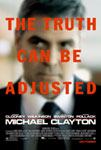Home > Archive > 2009 > June > 2
Why simplicity matters
Tuesday, June 02, 2009 by Dave Winer.
 Jay asked, in a recent RTN podcast, why simplicity is so important. I don't think I had ever been asked this question, and it had been a long time since I considered any other way, so I didn't have an answer prepared. I fumbled.
Jay asked, in a recent RTN podcast, why simplicity is so important. I don't think I had ever been asked this question, and it had been a long time since I considered any other way, so I didn't have an answer prepared. I fumbled. ![]()
It has bothered me ever since, but not as a front-burner thing -- I still accept the value of simplicity as a given. As I build layers of software, the simpler I make each layer, the higher I can build. If you don't design to hide complexity behind interfaces, you get overwhelmed by the complexity sooner, and your project can't do as much. Early in my career I often scrapped multiple levels and went down to the roots and rebuilt. Once I understood what the higher levels looked like, it exposed deficiencies in the lower levels. Reworking the lower levels allowed me to build higher. (It happens in other technologies too. For example, the design of office buildings changed radically once elevators had been invented.) ![]()
The ultimate interface is where you pass off to another user, and a whole new human brain comes into it. As a designer, I try to present a conceptual model to the user that's as simple and predictable as possible. This allows them to focus on their work without mine getting in their way. In the movies they call this "suspension of disbelief." The user gets so wrapped up in the story they forget it's a movie. It starts feeling like life. Even so, I like to create things that can be explored beneath the surface. If you want to "lift the hood" I know you'll see a puzzle, but I hope it's approachable. ![]()
As I discussed in this week's RTN, I'm working my way through Season 1 of James Burke's Connections series. It aired on PBS in 1978. Yesterday I watched the final episode in the series. It was even more fascinating than the previous nine. Its message is so important that it's worth taking time away from the innovations of our day and to talk about the process of innovation itself, and why it's dangerous. Yes, that's right -- dangerous. I've known this all along, and I've tried to publish warnings, but Burke does it with a breadth I've never approached. ![]()
There was a time, not too long ago, when anyone who wanted to could understand any invention that our lives depended on. Look around and look past the computer monitors and hard drives. Look at a door, for example, a hinge, a door knob, the door itself. All of this technology is transparently simple, and at one time, not that long ago, it was leading edge. I suppose paint might be hard to understand, but if you really wanted to understand how it was made, you could. It might take some time, and you would have to talk to an expert or read a book, but it wouldn't take much time to understand it. ![]()
But why bother understanding it? Burke asks. Isn't it enough to just use it and enjoy it and let it sustain your life? Yes, it is, until you have to make a decision about it. Or until it fails. ![]()
If you had asked me a year ago if we would live to see the financial system melt down, I would say yes, it's the one thing I'm most scared of. Like many others, I listened to experts talk about the aftermath of the collapse, reporters from famous newspapers, economists, radio show hosts. One thing I heard over and over was that no one actually understood how the system worked. Yet we had built our economic system, our lives, on it. Let me repeat that so it sinks in. No one understood how it worked. ![]()
It's only in its unraveling that we're learning how our economy works. ![]()
But that's far from the only system that no one understands. ![]()
Think about all the technology you depend on to live that you don't understand, and ask yourself if anyone understands it. ![]()
What if you went to the ATM and all your money was gone? What if everyone went to the ATM and all their money was gone? Think it can't happen? It did happen in post-Katrina New Orleans. ![]()
That's just one vector. Think about food supply, sewage treatment, water, transportation, education, law enforcement, health care, defense. We're making decisions about all these things every day whether we know it or not, and like the financial system, some people understand parts of these systems, but it's likely that no one understands the whole thing. ![]()
 At the end of the series Burke lays out a set of choices we faced in the late 70s. We could continue along as we have been through all of history, or we could change course. It's now 30 years later and we didn't change course, and it seems we're not likely to. But if you're an innovator, you have a choice. You can create new things with an emphasis on being understandable to the people who use them, not just at the surface level, but under the hood too. It often takes more work to make it hard to understand. But even if it takes more work, it's worth doing it simply, helping create the sense that technology is understandable, because imho that's the key to moving forward in a way that might just work.
At the end of the series Burke lays out a set of choices we faced in the late 70s. We could continue along as we have been through all of history, or we could change course. It's now 30 years later and we didn't change course, and it seems we're not likely to. But if you're an innovator, you have a choice. You can create new things with an emphasis on being understandable to the people who use them, not just at the surface level, but under the hood too. It often takes more work to make it hard to understand. But even if it takes more work, it's worth doing it simply, helping create the sense that technology is understandable, because imho that's the key to moving forward in a way that might just work. ![]()
Update: Example of perfect simplicity. View Source in web browsers. ![]()
Recent stories
 Dave Winer, 54, pioneered the development of weblogs, syndication (RSS), podcasting, outlining, and web content management software; former contributing editor at Wired Magazine, research fellow at Harvard Law School, entrepreneur, and investor in web media companies. A native New Yorker, he received a Master's in Computer Science from the University of Wisconsin, a Bachelor's in Mathematics from Tulane University and currently lives in Berkeley, California.
Dave Winer, 54, pioneered the development of weblogs, syndication (RSS), podcasting, outlining, and web content management software; former contributing editor at Wired Magazine, research fellow at Harvard Law School, entrepreneur, and investor in web media companies. A native New Yorker, he received a Master's in Computer Science from the University of Wisconsin, a Bachelor's in Mathematics from Tulane University and currently lives in Berkeley, California.
"The protoblogger." - NY Times.
"The father of modern-day content distribution." - PC World.
One of BusinessWeek's 25 Most Influential People on the Web.
"Helped popularize blogging, podcasting and RSS." - Time.
"The father of blogging and RSS." - BBC.
"RSS was born in 1997 out of the confluence of Dave Winer's 'Really Simple Syndication' technology, used to push out blog updates, and Netscape's 'Rich Site Summary', which allowed users to create custom Netscape home pages with regularly updated data flows." - Tim O'Reilly.
Dave Winer
© Copyright 1994-2009 Dave Winer
Last update: 6/2/2009; 9:00:26 AM Pacific. "It's even worse than it appears."